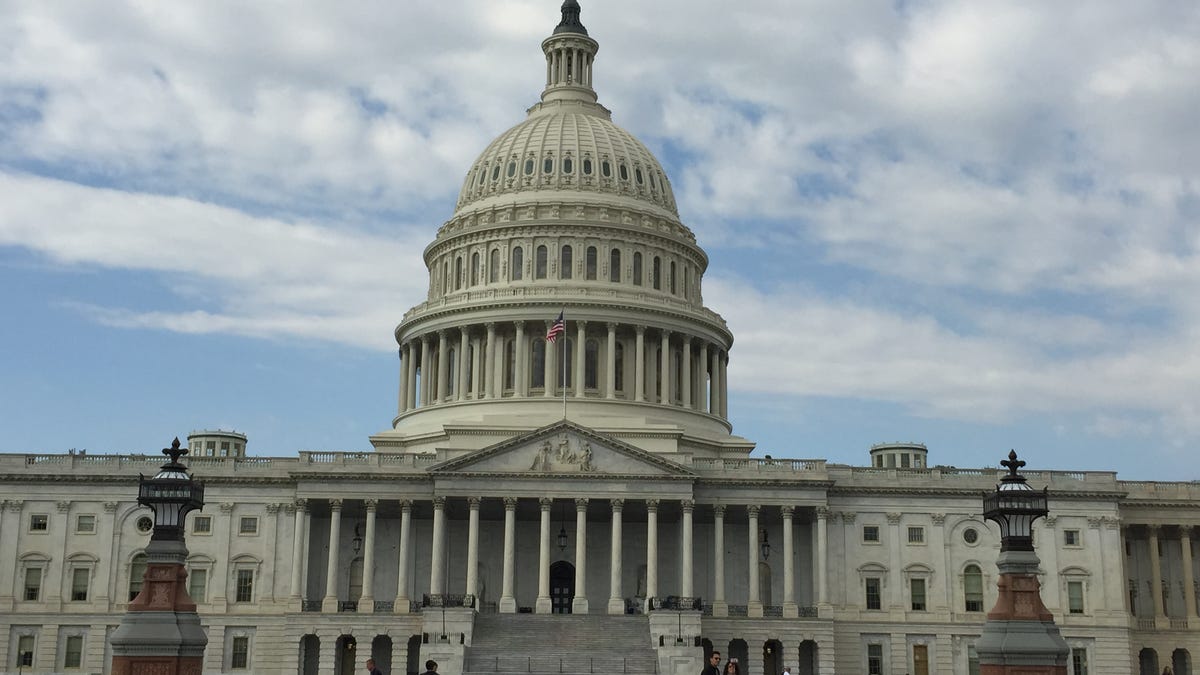House hearing on Democrats' net neutrality bill gets testy
Republicans say the Democrats' bill has no chance of passing the Senate, and they call for a "real bipartisan" effort to protect the internet.

Republicans and Democrats faced off Tuesday in a House hearing on the Democrats' plan to restore Obama-era net neutrality protections.
The hearing before a subcommittee of the House Energy and Commerce Committee House examined the Save the Internet Act, which Democrats introduced last week in the House and Senate.
Out of the gate, Republicans on the subcommittee blasted Democrats, who now control the House, for not working with them to come up with a bipartisan bill.
"It's time for bipartisan legislation that could actually become law," Greg Walden, a Republican from Oregon, said at the hearing. "Unfortunately, my friends on the other side have decided not to work with us."
Bob Latta, a Republican from Ohio and a ranking member on the committee, accused Democrats of retrenching "to the most extreme position in this debate."
Meanwhile, Mike Doyle, a Democrat from Pennsylvania who heads the subcommittee, criticized Republicans for introducing their own bills without any warning or discussion with Democrats.
"If the minority desires a bipartisan solution, I got no phone call to discuss this," Doyle said. Instead, he said, "What I got were three bills brought up without our knowledge and a letter we didn't know was coming."
Doyle said he suggested that there's a "better approach" to bipartisanship, and he said his door is always open to his colleagues if anyone wanted to "wander into it."
Political divide
The bill that Democrats introduced would essentially reinstate a set of rules passed by a Democrat-led FCC in 2015 that prohibited broadband companies from blocking, slowing down or charging extra for priority access to websites and services. The rules were repealed in 2017 after Republicans took control of the White House and the FCC.
The hearing was the first of this Congress to consider legislation on the issue, although it was the second hearing on net neutrality. Following a hearing in February, Republicans introduced three of their own bills, which Democrats have criticized as not giving the FCC sufficient authority to police broadband companies.
The testy exchanges and jabs among lawmakers underscore the deep political divide on the net neutrality issue. At the heart of the debate is the Obama-era FCC's decision to reclassify broadband networks to make them subject to the same strict regulations that govern telephone networks. Supporters say the reclassification was needed to give the rules an underlying legal basis.
The stricter definition provoked a backlash from Republicans, who said the move was clumsy and blunt.
The bill Democrats introduced last week reimposes this classification, which gives the FCC authority to police broadband providers who don't play by the rules. But the bill also strips out older, antiquated provisions of the classification, which are not relevant to broadband.
Doyle argued during the hearing that this was a "step toward our colleagues and people in the [broadband] industry."
"We are trying to work in a new way to put out a bill that recognizes some of the concerns from minority," he said.
Republicans like Latta and Cathy McMorris Rodgers, from Washington, who introduced her own bill based on one that her state legislature passed last year, said the Democrats' bill was more about "scoring political points" rather than coming up with a solution to protect net neutrality. She also said the Democrats' "partisan approach" would not "pass the Senate."
Robert McDowell, a Republican who previously served on the FCC and was testifying before the committee, agreed with McMorris-Rodgers.
"I think you can find bipartisan support [on net neutrality] and get 60 votes in the Senate," he said. "But I don't think this is the bill to do it."
Democrats will move forward
Doyle said at the conclusion of the hearing that the bill will continue the committee process in the House.
Speaker of the House Nancy Pelosi, of California, and New York's Chuck Schumer, who leads the Democrats in the Senate, said last week when the bill was introduced that they're confident it will pass both the House and Senate.
"Last spring, our colleagues in the United States Senate were given that choice to side with the average person, rather than the big special interests, to side with protecting consumers and entrepreneurs," Schumer said when the bill was introduced "Unfortunately, all but three Senate Republicans voted on behalf of special interests. It passed the Senate, but unfortunately a Republican House of Representatives shelved it. Now we have a Democratic House, and Republicans have a second chance to right the Trump administration's wrong."
But the legislation is far from a slam dunk, even among members of their own party. Along with Republicans there were also many Democrats in the House last year who didn't support the effort to reinstate the 2015 rules. There's also a chance that the three Republicans that supported the Congressional Review Act effort in the Senate may not pledge their support this go-around.

